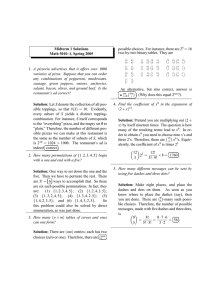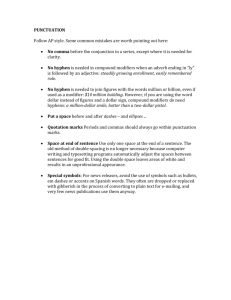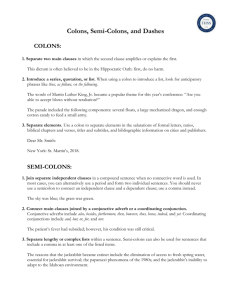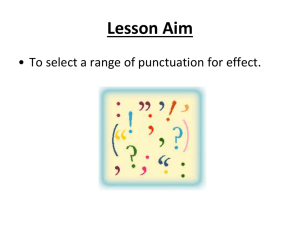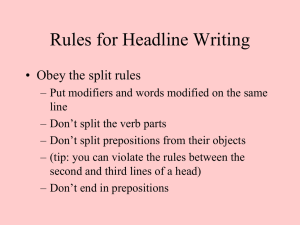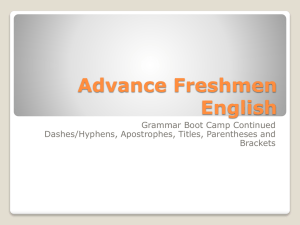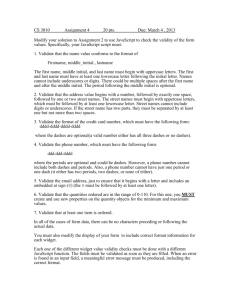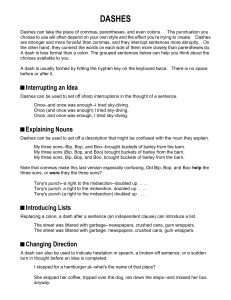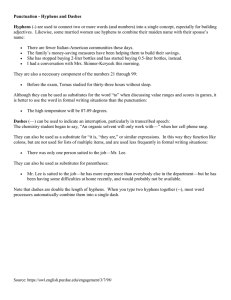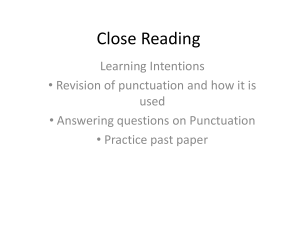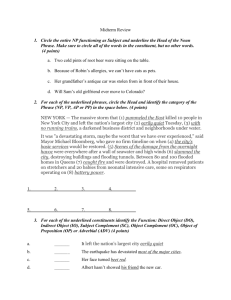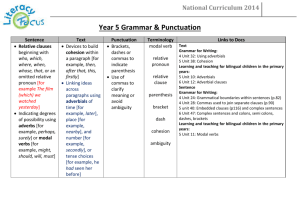Colons and Dashes
advertisement
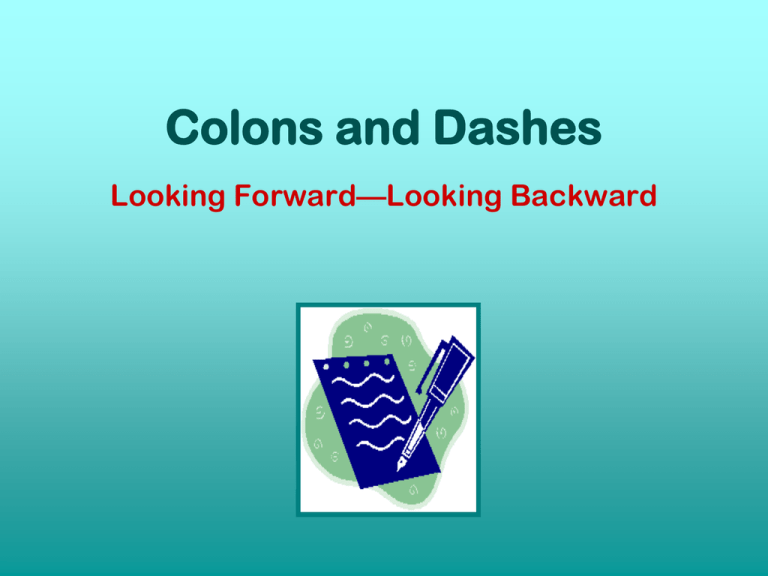
Colons and Dashes Looking Forward—Looking Backward Colons The colon is essentially forward-looking and introduces something hinted at but not yet mentioned, most often in the form of a list: My mother is sending me to the store to buy groceries: eggs, bacon, milk, and flour. We will visit seven European countries in the spring: France, Italy, Belgium, the Netherlands, Spain, Germany, and the Czech Republic. Cannibalism is of three kinds: endo-cannibalism, exocannibalism, and ritual cannibalism. Dashes Dashes are backward-looking, and specify the particulars of something already mentioned: I was born in Rhodesia—or Zimbabwe, as it is called today. I graduated from Brigham Young University— and yes, I was a Mormon at the time. Dashes Dashes may also be used parenthetically: My mother—who lives in Idaho now—still considers herself a Hoosier. The Hundred Years’ War—which lasted 116 years, mind you—ran from 1337 to 1453. When I wrote my first book—twenty-two years ago, now, I’m chagrined to say—it was much easier to find a publisher than it is today. General Principles The general principle to remember, then is that – colons are introductory in nature and present something not yet mentioned. – dashes are explanatory in nature and elaborate on something already mentioned. Questions? Painting by Burne-Jones, “The Baleful Head.” PowerPoint Presentation by Mark A. Spalding, BA, MEd, MA. The End
